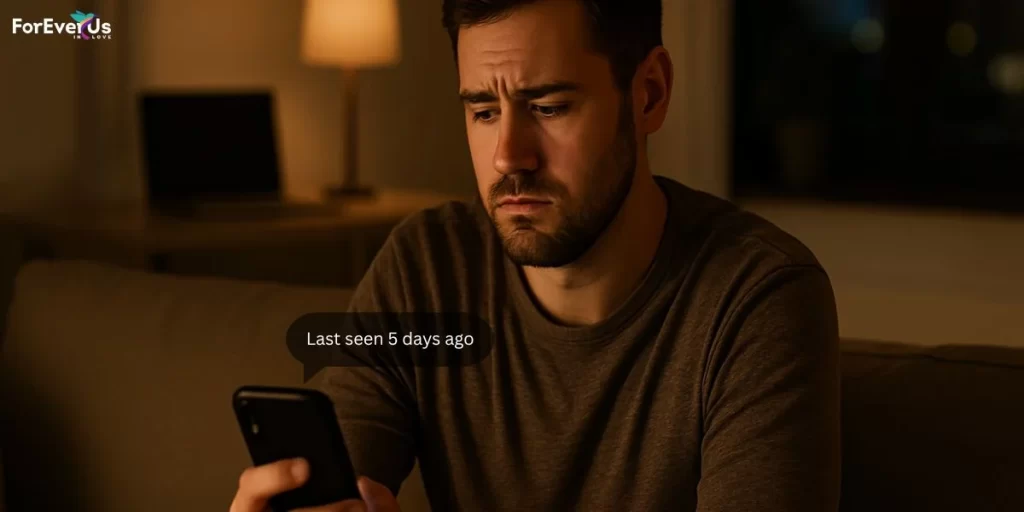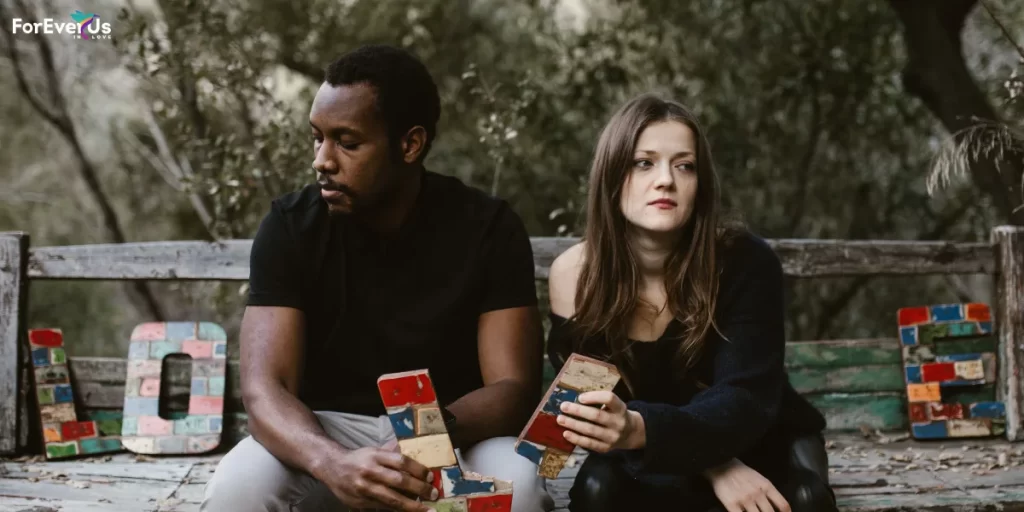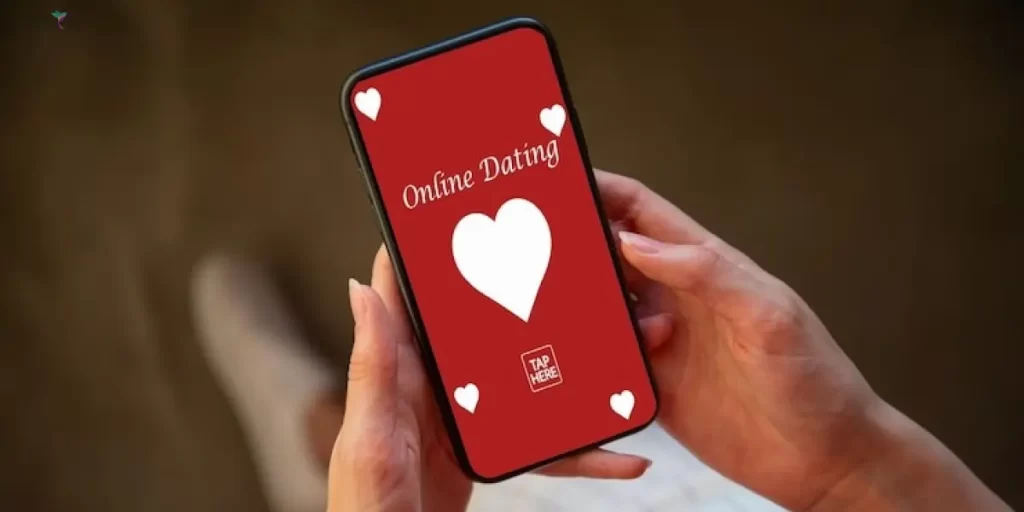Online dating has become more and more popular as it moves closer to digitization, which is altering how we look for love in the smartphone age. Finding and meeting someone special can be really simple with just a few swipes and small talk with folks from around the world. However, the online dating industry has some potential risks and dangers, much like any competitive marketplace.
Even in the midst of enthusiasm and excitement, it’s critical to recognize some warning indicators or red flags. Ultimately, the thrill of discovering a new partner or mate shouldn’t eclipse the importance of your body and heart.
Recognizing relationship warning signs in this digital jungle can make the difference between a healthy, flourishing relationship and one that should be avoided. You can easily navigate these intricate procedures if you are aware of these warning flags. These include profile checks, behavior observations, and family history research. In this in-depth essay, we’ll examine the 15 warning signs that could portend disaster. Without further ado, let’s examine these indicators of a sincere partnership.
What Are Relationship Red Flags?
“Relationship red flags” refer to warning signs or serious indicators that show something may be wrong or serious in a relationship. These are in terms of behavior, attitude, or patterns that suggest issues that could lead to serious problems or conflicts if not resolved. Identifying these red flags early can be important for maintaining a healthy relationship and avoiding mental stress.
Let’s break some examples that help you understand the term in a better way:
- For instance, if one partner constantly avoids discussing important topics, such as health, finance, family, etc., and gets frustrated without listening to anything, it is a big communication problem.
- Another example is if one partner frequently checks another’s phone and social media accounts without permission, it creates trust issues and havoc in the relationship.
Identifying red flags in a relationship does not necessarily mean that the relationship is doomed, but it is important to solve them before they break any relationship. Open communication, professional counseling, and mutual effort can sometimes help couples address these issues or end the relationship, perhaps better for one’s safety and better future.
Relationship Red Flags vs. Green Flags

Understanding these flags helps you more than you think. Being able to recognize these flags also being able to spot potential warning and healthy signs in your relationship. You ready!? Let’s GO!
Red Flags
Red flags are significant signs that indicate serious issues or problems in a relationship. These issues are often problematic and harm your regular life as well as your well-being. Ignoring these signs can cost you more in the long run and lead you towards unhappiness.
Green Flags
Green flags are positive signs that indicate a healthy and likely fulfilling relationship. These flags reflect that both partners are working positively together and validating the other’s perspective.
By recognizing and understanding the flag system, you can navigate the relational landscape more effectively and ensure that the relationship is a source of joy and support.
15 Subtle Relationship Red Flags To Be Aware Of
In any relationship, it is easy to get tempted by emotions and overlook small warning signs. However, identifying these subtle signs early can prevent many unseen situations and also stop creating an impact on one’s mental well-being. Here are 15 subtle red flags to be mindful of your valuable relationship journey.
1. Lack of Respect for Your Emotions
If, now and then, your partner dismisses or even disregards your feelings, this is an indication of low emotional concern for you. Instead, they can ignore your feelings, belittle them, or make them out to be something that’s not important, and this destroys self-esteem and trust in the relationship.
2. Constant Need for Validation
Another common behavior that points to insecurity is if your partner constantly asks for affirmation and compliments from you. Slight attention-seeking is natural, and it’s reasonable to need validation at times; however, if you feel that you need it more often uninterruptedly, it might make your partner uncomfortable and signify some self-esteem issues.
3. Avoidance of Important Conversations
Being secretive about something more formal can show that one does not want to deal with the conflict that comes with vulnerability or commitment. If your partner always avoids crucial discussions, then it raises conflict-handling issues that affect the handling of issues affecting the relationship either negatively or positively.
4. Overly Secret Behaviour
Some degree of privacy is appropriate, while exclusivity or constant refusal to mold one’s data can be the most indicative of a potential problem. If your partner is too hard to trace, you may need to worry about him/her because there are hard signs of lying or hiding something important.
5. Inconsistent Communication Pattern
Inconsistency in their stance, for example, being affectionate one time and withdrawing the next, is discouraging. Consistency is crucial in any relationship; if two people are not consistent with each other during the interaction process, there may be many underlying problems or emotional withdrawal.
6. Reluctance to Pull up Another’s Short for Family or Friends
There are times that if your partner does not introduce you to his/her friends, something that has often been a normal practice or routine, then it may denote certain uncertainties in the future of the relationship. This behavior can also make you feel as though you are not a valued member of their life and that your presence is not valued.
7. Throw Tantrums Through Jokes
While joking might be playful and okay to do occasionally, sarcasm is a form of criticism that breaks down your ego. If these jokes are targeted towards highly sensitive personal issues or general undesirable character traits, then your partner is likely conveying disrespect, disdain, or no concern for your feelings.
8. No Investment Money for Your Goals
A real partner will never stop you from doing what you want and will always support you through thick and thin. For instance, if your partner looks unmoved or even unresponsive when you show them your enthusiasm to follow a hobby that you are passionate about. In that case, it can mean that the partner has a lack of concern for your development and may create an uneven relationship.
9. Being Controlling
Restriction can be individual; for instance, you make all the decisions by yourself, or social, for example, your access to seeing your friends is restricted. If your partner tries to control you, it takes away your self and independence and is a warning sign that a power struggle in the relationship might be unhealthy.
10. Inconsistent Display of Affection
Affection is known to change over time, and as much as this is normal, it may lead to insecurity, especially if there is an inconsistency in how affection is delivered. When affection is demonstrated erratically or when affection is given if and only if met with specific behaviors, this could indicate further severe relational insecurity issues or relational and emotional willingness and commitment.
11. Takes Full Responsibility for the Issues That One Is Facing
Also, if your partner constantly complains about externalized problem factors or other people, this could be a sign. If your partner has no responsibility for the particular situations where they tried to enforce narrow-scope reasoning or their standards. Otherwise, they could be shifting expectations onto you or imposing some type of deficiency onto you.
Blaming shifts the responsibility to a person or thing when they are at fault while also influencing the conflict-resolution system of the relationship.
12. Limited Conflict Engagement
Let’s assume that your partner becomes more aggressive during the instruction lens. In that case, there could be little attempt at conflict with the depth and clarity of analysis in relation to the disagreement throughout the instructing phase.
Suppose you get a feeling that your partner does not care about adequate conflict resolution or exhibits minimal effort. In that case, it implies a reduced empowered role in the entire partnership – fulfilling the conflict resolution dimension.
13. Lack of Cooperation In Partnership
If your partner gives you the signal that they usually contribute less than you to the relationship, you may generate conflict about their contribution. In other words, both men and women should have an input in the ordering and intention of any healthy relationship. It can also point to end-user inequalities in terms of effort or contribution, whereby providing less effort or input means less investment.
14. Aggressive Behavior
Sarcasm is another form of aggressive behavior, as it is an indirect way of expressing anger and frustration. Such behavior must be unconstructive for honest and open communication and therefore makes it unpretty to deal with problems effectively and sensibly.
15. Not Interested in Future
A partner who does not care about talking about the future or actively tries to avoid such conversations may be unsure about the relationship’s permanency. Future planning is necessary for long-term relationships; hesitation to engage in these conversations can indicate a lack of vision for the relationship.
Key Takeaways
So, here we discussed 15 relationship red flags to watch for the next time when you are open to online dating.
Remember, red flags are not always a deal breaker. But, partners should have the maturity and awareness to overcome those obstacles. Suppose they show the willingness to bring change to their attitude, invest mutual time and effort, and are committed to working towards building a healthy and lovable relationship. In that case, it can be saved and lead them towards a prosperous future.











